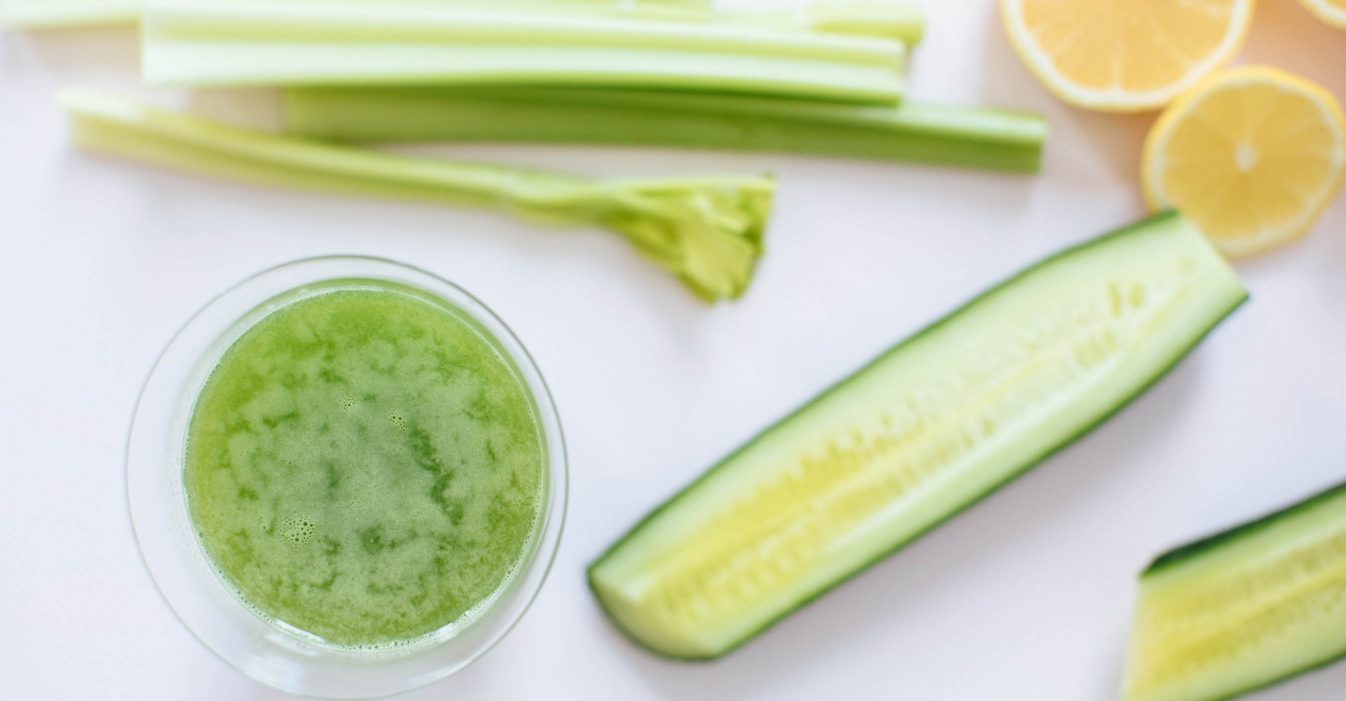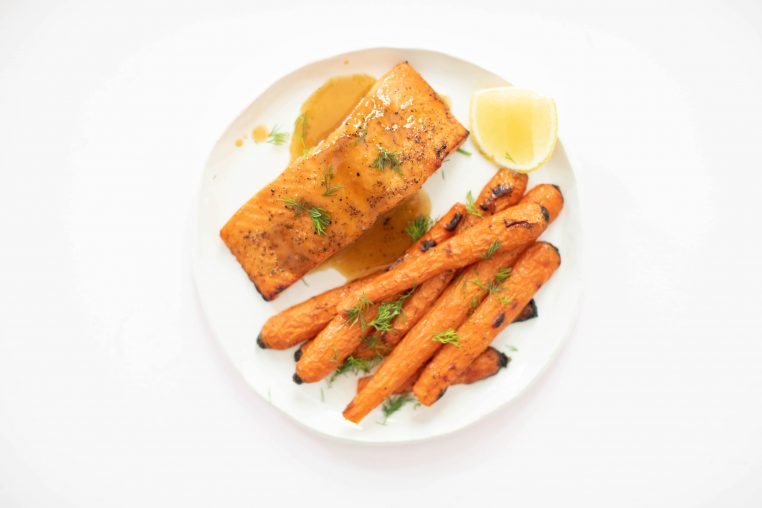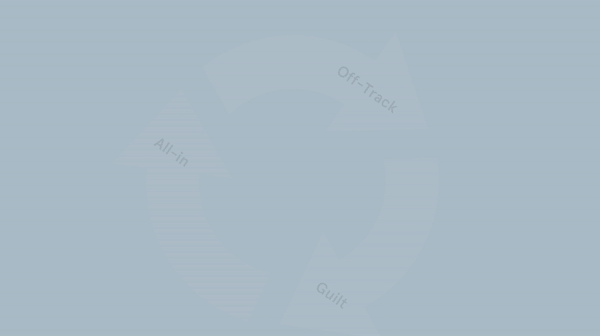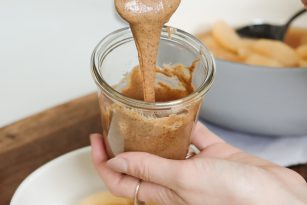With the New Year around the corner, are you thinking about setting a resolution? If you’re like most people, you are, and that resolution may include reaching a specific goal weight.
If you have a specific goal in mind for yourself, usually the first thought is to find a diet, plan, or another quick fix that will help you achieve that goal.
Right? That’s been the default mode for everyone for way too long.
But diets and plans won’t actually support you with achieving and maintaining that goal. Let alone, help you create habits that are sustainable. In reality, they actually do quite the opposite. Here, I’m sharing exactly why that is and how you can better form eating habits that support you.
Reflect On Your Past Experiences With Diets and Plans
Now, I know what you’re thinking. You’ve gone on diets before and they’ve worked.
But hear me out…
If they really worked, then you wouldn’t need to go on another one, right? You would have reached your goal, maintained your success, and been done with diets forever, right?
Be completely honest with yourself for a moment…
How many times have you started a diet and said this is the last one? This is the one where I’ll stay motivated and have the willpower to make it last? Yet 30 days later, a month or two later, you find yourself back at square one. Unmotivated, lacking willpower, and unable to maintain your progress.
We’ve had several members join our Mindful Nutrition Method™ program and share that they went through this exact cycle of telling themselves that this diet is “the last one”, for years.
Plans are focused on giving you short-term hacks to see immediate results, but not support you through the long-term behavior change that’s needed to make your results last. This is why studies show that dieters end up gaining weight back within 12 months.
Why Physical Results Aren’t The Best Goals to Set
Whenever you’re focused on achieving a specific result in a specific amount of time, it, unfortunately, sets you up to fail for a couple of reasons.
If you don’t achieve the goal you set for yourself in the time period (or at all), you’re inevitably let down. This can affect your confidence, and self-worth, and even make you feel like a failure, as our member Pippa described.
Pippa had come to us at a time when she had tried so many diets and set food rule after food rule for herself.
Every time Pippa “failed” at following one of those diets or rules, she blamed herself.
“It sounds really dramatic when I say that, but I think it made me feel worthless…I’m not getting it right means that I’m constantly failing at something. And when you feel like you’re failing at something and not being your best self constantly, it kind of makes you feel like maybe you’re out of control or lacking some sort of discipline, which is all really negative and really chips away at you and your confidence. That feeling of worthlessness was there for years.”
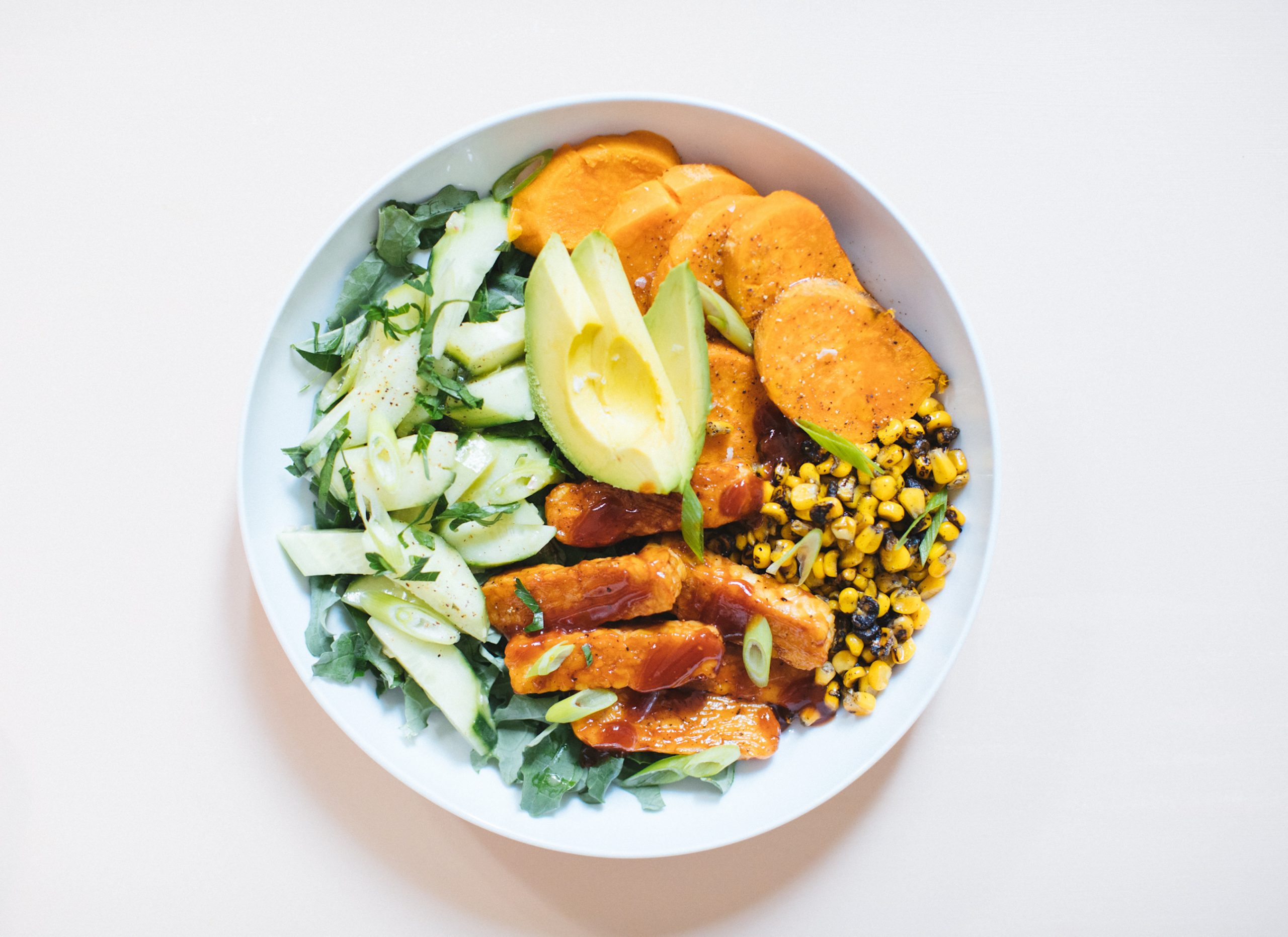
Even if you are able to reach your goal weight, you realize that the hacks and tricks you used to reach that weight aren’t sustainable for you long-term. Or maybe the way you’re eating is actually making you miserable. This is how our member Kristin described her experience.
“The way that I know how to lose weight is not fun, I don’t think it’s healthy, and honestly, I’m pretty miserable most of the time…it just doesn’t work long-term for me, and I can’t imagine that many people can sustain that for very long. But even if they can, it’s not pleasant, it’s not a fun way to live.”
Kristin summed that up perfectly. Can you relate to the feeling she’s describing?
When you go on a plan, you’re given a set of rules to follow, such as avoiding certain foods, counting calories, measuring out how much you’re eating, and other restrictive, unsustainable behaviors along those same lines.
But if you use restrictive and unsustainable habits to reach a specific weight, that weight won’t be maintainable for you.
How You End Up Cycling Through Diets, Plans, and Food Rules
Diets and plans are designed to be short-term fixes. It’s unrealistic to think that you can or should follow such strict guidelines 365 days a year.
I have a hunch that if you’ve dieted before, you’ve likely already realized that restrictive ways of eating aren’t sustainable for the long term. Even if you reached your goal, you weren’t able to maintain it. One of our members, Diane, shared this exact experience when explaining why she joined our program.
She said, “I was at goal weight for about twenty minutes before I started to regain and had to start all over.”
This reaction from your body doesn’t necessarily mean you’re now eating unhealthfully or being “bad.” More often than not it means that the eating behaviors you were using while dieting were simply too restrictive. In turn, they caused you to lose weight too quickly and in an unsustainable way.
So in many cases, this weight gain is your body’s way of restoring the nourishment it needs. It’s your body’s way of telling you it didn’t like what it just went through!
But unfortunately, when people see weight gain, it can cause them to feel food guilt or shame for gaining weight or not reaching the goal weight in the first place. This can lead you to seek out another diet or plan because that one didn’t work, saying that this next one will be your last.
You can see how easy it is to fall into this cycle. When you’re in this cycle, you’re never able to find what supports you for the long term. You’re always seeking short-term results.
Months or even years may go by where you’re continuing in this pattern. Eventually, you’ll find that you haven’t been able to achieve or maintain your goal.
Setting Goals That Prioritize Your Nourishment
If you aren’t focused on developing a way of eating that you can easily integrate, without feeling restricted or stressed, you’re never going to be able to maintain it, which takes you farther away from your goals.
Rather than focusing on physical results, focus on developing eating habits that feel supportive. Focus on feeling balanced, and engaging in habits that align well with your life. Those changes are going to be maintainable for the long term. This allows you to create that consistency and ease around food, which allows you to best care for yourself.
Here are a few examples of positive nutrition goals to work towards:
- No longer experiencing guilt after you make food choices
- Feeling like your eating habits are happening naturally and easily for you
- No longer thinking or stressing about food all day long
- Finding enjoyment in nourishing yourself well
- Having awareness of what does and doesn’t work uniquely for you
- Feeling confident in your ability to listen to your body and make the best choices
- You’re not feeling pulled into trends or diets
- You feel happy, at peace, balanced, and cared for
Here’s what our member Diane shared about her journey from letting go of diets towards reclaiming balance with the way she nourishes herself:
“I’ve been on so many weight loss journeys, and each one was supposed to be my last. I have just lost 80 pounds through tracking every calorie, but that is not how I want to live. I’ve been through that several times. I lost a hundred pounds in 2014 and was at goal weight for about twenty minutes before I started to regain and had to start all over.
It’s Friday night, and normally I would just be nervous and tense because I would have to start my food preparation marathon. I was weighing and measuring everything and recording every calorie. I’m no longer doing that. Instead of dreading the weekend, I look forward to cooking some very delicious and nutritious food and joyfully preparing lunchboxes and breakfast bowls, and dinner plates for the week. The Mindful Nutrition Method™ has become my safety net. I haven’t reached my goal weight and now I don’t care when I reach it, I just know I am going to reach it at the right time with mindful eating and a joyful attitude about cooking and eating.”
Make Lasting Changes That Prioritize Your Unique Wellbeing
So instead of dieting, commit to practicing a sustainable approach to nourishing yourself well. By doing this, you’re able to make long-lasting changes, create consistency beyond 30 days, and find what works best for your body. You’re better able to reach and maintain a balanced weight that’s natural for your body to maintain.
You can take the first step towards doing this by signing up to watch my free masterclass today, where you’ll learn How To Break Free From The Diet And Food Obsession Starting Now.
You don’t need to stress and obsess about food. There is a better way and yes it’s possible to cultivate a positive relationship with food! Join this free balanced eating masterclass to learn how.

